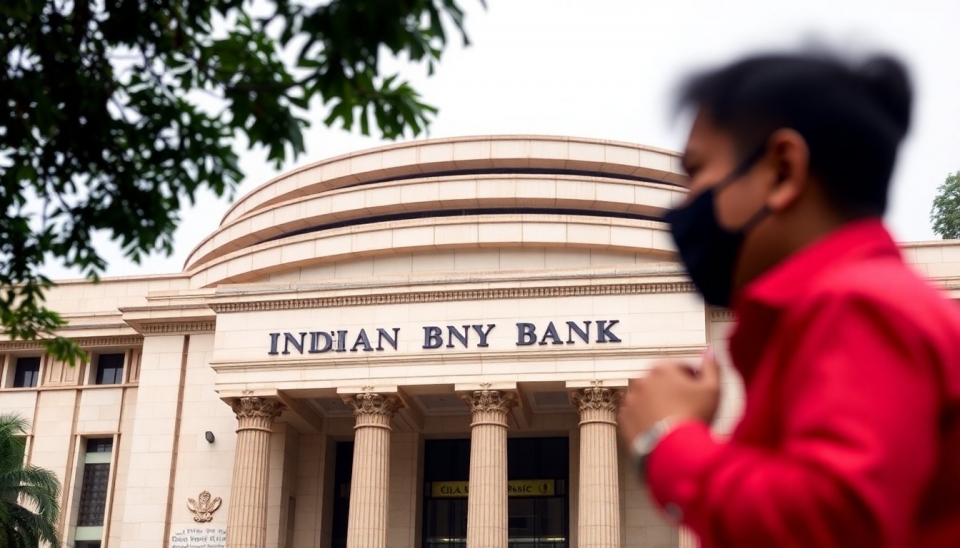
The Rise of 84-Month Car Loans Among Buyers
In recent months, there has been a noticeable increase in the number of American car buyers opting for 84-month loans for new vehicles. According to research conducted by the analytics firm Edmunds, the share of such deals rose by almost 40% compared to last year. This trend has emerged as a result of rising prices for new cars and increasing interest rates, which have led buyers to stretch their financing terms.
Continue reading
Sharp Drop in U.S. Mortgage Rates: Largest Decline Since Mid-September
This week, mortgage rates in the United States saw a significant drop, recording the largest weekly decline since mid-September. According to reports, the average rate for a 30-year fixed mortgage fell to 7.57%, which is down 0.32% from the previous week. This development has become a crucial event in the market, considering that high interest rates had previously made it difficult for homebuyers.
Continue reading
Indian Central Bank Tightens Scrutiny of Credit Activity
The Reserve Bank of India has decided to intensify its measures to control credit activity amid growing concerns over excessive borrowing. This decision is part of efforts to maintain financial stability and minimize risks related to a potential rise in loan defaults. The bank's monetary policy committee plans to closely monitor credit institutions as the country grapples with concerns about the sustainability of economic growth and possible negative consequences associated with rising debt.
Continue reading
Auto Loans: The Second Largest Household Debt in the US
A recent report indicates that auto loans are becoming the second largest source of household debt in the United States, second only to mortgage loans. With rising car prices and increasing borrowing costs, auto loans have reached record levels, impacting the financial situation of Americans.
Continue reading
China's Credit Growth Slowed: Causes and Consequences
In August 2024, China's credit growth has slowed down, indicating a persistent lack of confidence among consumers and businesses. Data released by the People's Bank of China showed that total credit rose by only 1.25 trillion yuan (approximately 178 billion dollars), significantly below the expected 1.5 trillion yuan. This slowdown is occurring amid increasing economic uncertainty and weak consumer demand, prompting economists to express concerns about the sustainability of the country's economic recovery.
Continue reading
Central Banks: Victory in Battle, but Defeat in War?
According to recent research and analytical conclusions, central banks, despite their successes in combating inflation, find themselves in a challenging situation that may lead to unforeseen economic consequences. In recent months, many leading central banks, including the U.S. Federal Reserve, the European Central Bank, and others, have significantly raised interest rates to deal with rising prices and alleviate inflationary pressures.
Continue reading
Surge in Household Loans in South Korea Creates Uncertainty for Rate Cuts
Recent news from South Korea indicates a significant increase in the volume of household loans, complicating the outlook for interest rate cuts in the country. According to the Korean Bank, the volume of loans issued to households rose by 0.5% just in August, reaching a record level of 1.891 trillion Korean won.
Continue reading
Thai EV Sales to Miss Target as Banks Curb Loans on Debt Risk
A recent market analysis revealed that electric vehicle (EV) sales in Thailand will fall short of planned levels. The primary reason for this is the rising debt risk, which has led banks to restrict loan provisions for the electric vehicle sector. This situation is causing concern among manufacturers and potential buyers, as the availability of financing plays a crucial role in the purchase of such vehicles.
Continue reading
Major Banks Launch $2.05 Billion Loan for Instructure Buyout
Recent news from the financial sector reports that several major banks have announced the launch of a $2.05 billion loan package to support a buyout by Instructure. This event marks a significant step in fostering stability and growth for Instructure, a company renowned for its educational technology solutions.
Continue reading